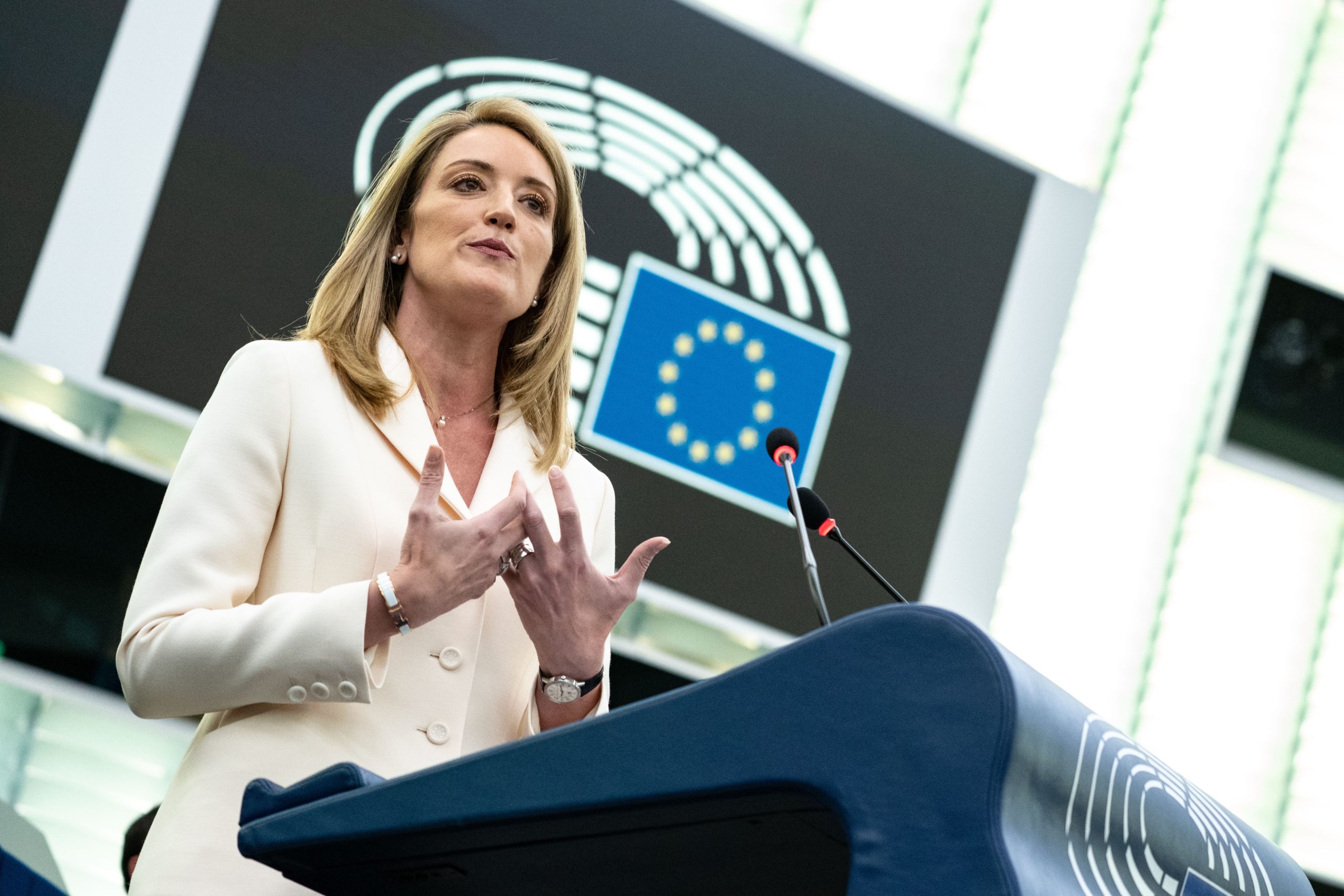Andrew Duff
“Malte, c’est en Europe?”. That was one of the less obliging comments doing the rounds in Brussels when Roberta Metsola announced her candidacy for the presidency of the European Parliament. She countered the sceptics: “I am a woman from a small island in the middle of Europe’s southern sea. I know what it means to be the underdog, I know what it means to be pigeon-holed”. And on 18 January Metsola was duly elected President by 458 MEPs — an absolute majority of the House, in the first ballot. Her nearest rival, the Swedish Green Bah Kuhnke won 101 votes, and the Spanish Leftist Sira Rego won 57.
At 43, Metsola is the youngest MEP ever to be elected to the fauteuil, and the first woman for 20 years. Malta is the smallest country in the EU and her party is in opposition back home: contrary to the supposition of many commentators, the European Council seems to have played no part in her promotion. Although it was generally accepted that it was the turn of the European People’s Party (EPP) to take the chair, the fact that Metsola is rather a self-made President stands in her favour.
Unlike many Maltese politicians she seems free of the taint of corruption. She is clearly a competent operator, having earned credits for her active role in the civil liberties committee (LIBE), especially on migration issues, since her election to the House in 2013. She opposes the EU adopting a policy on abortion, a rather unfashionable stance in Brussels but one which cannot surprise her Catholic constituents in Malta. Her ability to chair the plenary as one of its vice-presidents attracted support from across the chamber. She speaks good English.
Will her election make a difference to how Parliament runs itself and how it is regarded elsewhere? Metsola is a mainstream member of the EPP. A pro-European by conventional standards, she is not known as a federalist and faithfully followed the EPP’s conservative whip on transnational lists (mostly against). She appears to have no personal political agenda to bring to the internal politics of the House — an uncontroversial stance which doubtless helped her smooth election.
Presidents of the European Parliament fall into different categories. There are overtly political presidents, such as Pat Cox (2002-04) and Martin Schulz (2012-17). There are parliamentary grandees such as Hans-Gert Poettering (2007-09) and those with symbolic importance, like Jerzy Buzek (2009-12), a former prime minister of Poland. Some presidents make it simply because they were in the right place at the right time: Josep Borrell (2004-07) was plucked from the ranks of the socialist group as a fresher MEP. The sad death of another social democrat, David Sassoli, President since 2019, brought to an untimely close his term of office for which he was well regarded as honest and sympathetic in ugly times, but not as a political high flyer.
All presidents hope to advance the profile of the Parliament in the public space. @RobertaMetsola is the first President who knows how to use social media. Compare her personal twitter feed with @EP_President. If she can free herself from Parliament’s apparat she may refresh the press room. It was a pity that Emmanuel Macron brooked no questions at the joint press conference he held with Metsola after his set piece speech in Strasbourg on 19 January. She will meet him again soon at the start of the next European Council where presidents of the Parliament are wheeled in and out of the presence of the heads of government in a fairly ceremonious way.
Her relationship with the Council will be of critical importance. President Metsola has to deal with a Parliament which is not endowed with strong political leadership of its own and with a Commission which lacks verve and cohesion. In an encouraging move, however, the leaders of the three large groups in the Parliament managed to draft a Midterm Agreement on their political priorities. Metsola will be able to remind them of their pact when the going gets tough on a complex legislative programme, especially on tax matters, climate and migration. When Manfred Weber, the EPP leader, presses the conservative brake, Metsola must wave the Midterm document in his face. All being well, by the end of her term in 2024, Metsola will have put Malta on the map.
Andrew Duff’s new book, ‘Britain and the Puzzle of European Union’, was recently published by Routledge.
The views expressed in this blog reflect the position of the author(s) and not necessarily that of the Brexit Institute Blog.
Photo Credit: European Union 2022 – Source : EP



